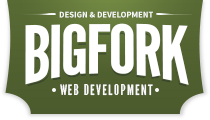Search Engine Optimization (SEO) is a set of practices that help consumers find you by improving your site’s visibility to search engines such as Google.
Why Should You Invest in SEO?
The days of people pulling out a phone book to find a local coffee shop are slowly diminishing. A survey by internet data firm comScore in 2007 found that 60 percent of consumers use the web as their first-line tool to search for local businesses. Therefore, not only should your company be on the web, but your website has to be visible to search engines, via SEO, so consumers can find you.
SEO intends to increase quality traffic to your website, or better the chances that users searching for your products, services or information are quickly able to discover your website. With over 13 billion searches performed in America this last January* and growing web competition in every field, it is not always an easy task to get found through a search engine. But it is necessary that you better your chances of being found. Keep up with, or get ahead of your online competition by optimizing your site and engaging in other good SEO practices such as social networking and link building to increase your chances of being found by consumers.
Where to Start: Natural Search Engine Optimization
A good place to start is with organic or natural SEO. Most tasks performed in this type of optimization are to better help the user navigate and understand your website. Search engines are programmed to be very human-like in the way they skim through a site. If your site focuses on human usability and trying to give your user the best, most up-to-date content, it will likely be easier for search engines to access content on your site as well.
The main focus of natural SEO is text. The text on your site should contain researched keywords that your target audience will most likely use when searching for your product, service or information. It is important to always think of the user while creating the text on your website. If the text is over stuffed with keywords or is not a simple read, search engines are going to find it just as complicated as the average user.
Just like a newspaper, text on a website should be formatted in a clear hierarchy of importance. Every page should have one main header that clearly defines the subject of the page, secondary headers after that to separate out grouped content, and so on. Add those researched keyword in headers when applicable.
Bold text that is important to the user, use bullet points where you can and remember to link! The web is all about being able to link to more information. Be careful not to abuse bolding, bullets or links. Use them to allow for quick scanning of the page for both human and search engine visitors. Keywords should be added whenever applicable to headers, bolded, linked and bulleted text, as search engines give these elements more weight than average text.
A very important element of natural SEO is the page title. The title is added in the code of the page and is displayed in the top bar of the browser window. It plays a large role in search engine ranking algorithms. The title is often used as the “teaser text” that appears under site links in search engine result listings. Therefore, the title needs to be a compelling sentence that will lure visitors to click on your link over the other listed results. A title also needs to contain page keywords and accurately summarize the content on the page, all in one short sentence.
Other natural SEO factors include site structure using Cascading Style Sheets (CSS), text replacing graphics whenever possible, image alt tags, meta data, minimal use of JavaScript and more. You web developer should be able to help you with these items.
If you are interested in natural SEO or would like more information on SEO, please call BigforkWEB – 406.837.3334.
